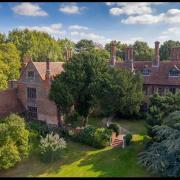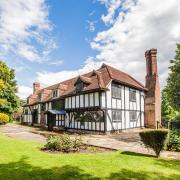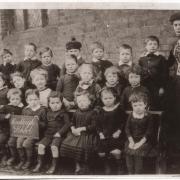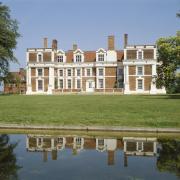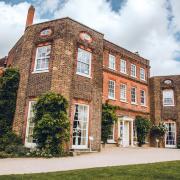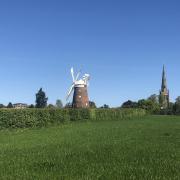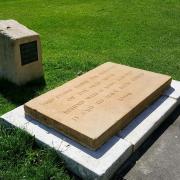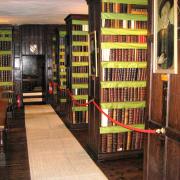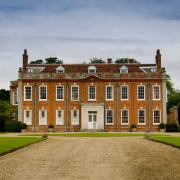The first rebel of Essex
By Stephen Roberts
Although a law-abiding citizen, I am also rebellious. Just because something is accepted, traditional, the norm or even the law, it does not necessarily make it right or just. During the Russo-Ukrainian War, we heard of courageous Russians protesting against the conflict and being arrested; I rest my case. I now look at the case of John Ball: rebellious folk hero or ‘chaplain of evil disposition’ (to quote a chronicler)?
John Ball was a priest, born in Colchester, who was executed for his part in the rebellion of Wat Tyler, which erupted in spring 1381. Yes, in 1381 the peasants truly were revolting. We think Ball was born around 1338, most probably in Colchester and that he was perhaps the son of William and Joan Ball of nearby Peldon. There is a John Ball mentioned in the Colchester Court Rolls of the early 1350s, but whether this is our man is hard to say; it’s not the most unusual of names.

Ball trained as a priest in York, moved to Norwich, then returned to Colchester where he ministered before becoming itinerant. His wanderings over two decades took him to Ashen, Billericay, Bocking, Braintree, Cressing Temple, Dedham, Coggeshall, Fobbing, Goldhanger, Great Baddow, Little Henny, Stisted and Waltham. The authorities were watching him though; Ball was a marked man.
Rebellion was normally the preserve of the nobility when it needed to flex its collective muscle against a wayward sovereign. What set 1381 apart was the humble nature of its participants and its leaders: Ball, Wat Tyler and Jack Straw. Somehow it made them more threatening. Don’t be misled though. This was not straightforward class war as there were others; artisans and even some gentry nailed their colours to the mast of revolt.
Ball preached social equality. His ready audience was mostly, but not exclusively, South East England’s peasantry. The risings were widespread and interpreted as a clear and present threat by a government that relied for its peace and prosperity on the community’s poorest being kept down and in their place.

The king was Richard II, who’d ascended the throne aged ten in 1377 when his grandfather, Edward III, pegged it. Richard’s own Dad, the famed Black Prince, was already dead. Come 1381, it was an inexperienced but seemingly precocious 14-year-old facing down a full-scale revolt. Ball meanwhile, was in bother, castigated by the Archbishop of Canterbury, Simon of Sudbury, forbidden to preach and yanked off to prison more than once. He refused to be intimidated, however, and just carried on regardless (my style too).
There were a number of social and economic grievances igniting the spark of rebellion that autumn, for example, the Statute of Labourers (1351) and a series of hated poll taxes. Landless labourers did OK after the Black Death, which arrived here in 1348 killing up to 50 per cent of the country’s population, but also leaving labour shortages profiting those fortunate enough to still be alive. The Statue stipulated that employers should not raise wages above those pertaining pre-pandemic. All landless men aged 60 or under were required to accept this ‘new normal’ even though it saw them worse off. In Essex, a rural county, the grievances were primarily agrarian.
The poll tax was first introduced in 1222 and applied to every person over 14 with levies of 1377, 1379 and 1381 ramping up resentment. It was the commissioners’ attempts to collect arrears that provoked the conflagration in Essex and Kent. When the revolt kicked off, Ball was harmlessly holed up in a gaol in Maidstone (Kent) where he’d been since April at the Archbishop’s pleasure.

Tyler’s rebels saw Ball as an ally though, so he was quickly sprung on 11 June, dutifully accompanying the throng on its march to London. Colchester, reputedly Britain’s oldest recorded town, fell to the rebels without a struggle, whilst Waltham’s abbey saw every document it possessed consigned to a bonfire.
Ball gave a sermon at Blackheath where the rebels, perhaps 10,000 strong, arrived on 12 June: ‘From the beginning all were created equal by nature, slavery was introduced through the unjust oppression of worthless men, against the will of God’. It was heady stuff, unlikely to endear him to the authorities. The famous slogan ‘When Adam delved and Eve span, who was then a gentleman?’ became a rebel rallying cry and has been attributed to Ball, possibly from the same sermon. What Ball gave the disgruntled multitude was a mission statement.
In London, the rebels rampaged, executing Sudbury and ransacking the house of John of Gaunt, uncle of the king, but ultimately, they would be defeated with Wat Tyler slain. Ball escaped, but scores needed settling and he was eventually cornered in Coventry and tried. I’m surprised the authorities bothered with the niceties of a trial, which gave Ball another platform to talk of ‘levelling up’ and revolution. He brazened it out, denying he had committed any wrong and suffered a hideous traitor’s death at St Albans (Herts) on 15 July 1381, in the King’s presence.
The remaining Essex rebels had already been defeated in the so-called Battle of Billericay on 28 June. Places where Ball once preached had featured again in the revolt: Fobbing where trouble began, Cressing Temple attacked by rebels, Coggeshall where the abbey was pillaged and the sheriff attacked, Bocking where the rebels gathered before heading to London, Great Baddow from whence another crowd headed towards London, Billericay where the last stand of the Essex rebels occurred.
Ball’s influence didn’t die with him, however, as rebellion remains a part of our birth-right, and it doesn’t take much to send demonstrators on to the streets. As Ball himself reputedly said, ‘For now is tyme (sic) to be war’. At Thaxted, a socialist-leaning vicar, Conrad Noel (1869-1942), dedicated a tower chapel to John Ball. He became known as the ‘Red Vicar of Thaxted’. Poll tax riots erupted again on UK streets in March 1990, with John Ball maybe smiling down as the government’s new Community Charge was abolished.
CHRONOLOGY
c.1338 – John Ball born, as far as we know, in Colchester to William & Joan Ball of Peldon.
1348 – The Black Death arrives in England making landfall at Melcombe Regis (Dorset).
c.1350 – Possible mention of John Ball in the Colchester Court Rolls.
1351 – The Statue of Labourers seeks to hold down wages at pre-pandemic levels.
c.1366 – Ball excommunicated for his preaching in which he advocated a classless society.
1377 – Richard II ascends the throne as a 10-year-old on the death of his grandfather.
1379 – Another poll tax follows that of 1377. There’ll be another in 1381.
1381 – The Peasants’ Revolt and the execution of John Ball in St Albans (Herts).
You may also like William Gilbert, father of electricity: https://www.greatbritishlife.co.uk/people/william-gilbert-father-of-electricity-9036324





